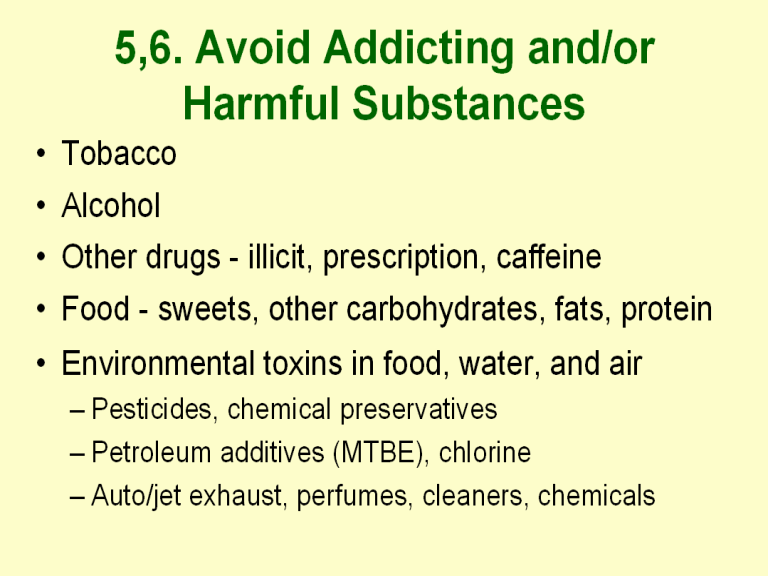Slide 13 of 15
Tobacco and alcohol, worldwide, probably lead to more disease than any other one thing. Obviously, a lot of deaths in this country, from heart disease, vascular disease, strokes, high blood pressure, cancer, are contributed to by these. For optimal health, we must avoid use of these substances. But addiction, by definition, means that, despite knowledge that it's harmful, there is an impulsive behavior to continue using a substance. What I'm trying to say is, anybody who smokes or drinks too much alcohol doesn't have to be told it is bad for them. So if, in fact, you do use tobacco or alcohol, and you want to give them up but find out you can't make that decision because you may be addicted, then you have to take steps to address the addiction. Now, that's a heck of a lot easier said than done, because there are really not that many time or true-tested mechanisms for doing that.
From a purely medical standpoint, there is nothing with a better track record than the Twelve Step Program of AA for alcoholism. Probably a similar program would work for tobacco or for any other addiction, for that matter. And to some extent that program is not so unlike the one I'm talking about in these 10-Steps, with different facets of your life and health.
Other drugs should be avoided as well. Caffeine is definitely a drug; it has pharmacological effects and can be addicting. It's widely present in the world in various drinks and foods. Of note, as far as I know, there is not a culture on earth that has not sought out mind-altering substances. Even the primitive cultures have within their traditions, substances that alter the consciousness and the mind. There must be something human about wanting to take a substance that makes us feel or think different. I'm not sure that other animals do it but it is possible. That must be where caffeine, and coca leaves, and chocolate, and all such mood-altering substances fit. It's my opinion that use of such substances does have health detriment, and personally, I just don't like the idea of using substance that can produce dependence or withdrawal if it suddenly became unavailable.
Food can certainly be addicting, especially carbohydrates, but to some extent proteins as well. The reason why reducing the amount and/or changing the sources of protein in our diet is so hard is because it is mostly amino acids (derived from protein) that are the neurotransmitters in our brain. And our brain always likes where it is currently. It doesn't like change. That's what change does, it imparts a change on your brain, primarily. That's the way we perceive that; protein in particular does that. One thing I have said about dietary changes: "Change causes fear in humans; dietary change strikes terror!"
Toxins. Understanding the potential for exposure to toxins has a lot to do with awareness. I had to become aware that there were pesticides in produce. Or chemical preservatives in most processed foods. Or petroleum additives in water. How chlorine in water can be toxic. The air: Note the rising incidence of asthma, alarming now in children. Perfumes are chemical and exacerbate asthma and have other toxic effects on sensitive individuals. Household cleaners, other residential and commercially-used chemicals such as carpet cleaners, dry cleaning fluid ,hold their own risks. These are very toxic substances. As far as I'm concerned, some avoidance or at least some awareness is part of being optimally healthy.
By the way, you can get too obsessive-compulsive on any good thing. Too much of a good thing is not good. You can get addicted to or overdo health, from that standpoint, if it starts to lead to a lesser quality of life. "If the whole world's toxic, then I'm just staying in my house." That's not necessarily a better quality of life.
Next Slide
Back to FinerHealth.com Home Page













